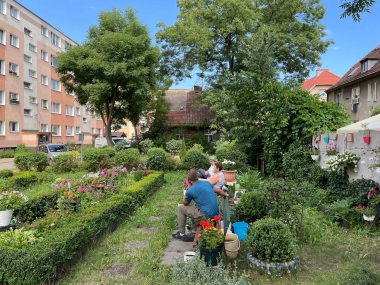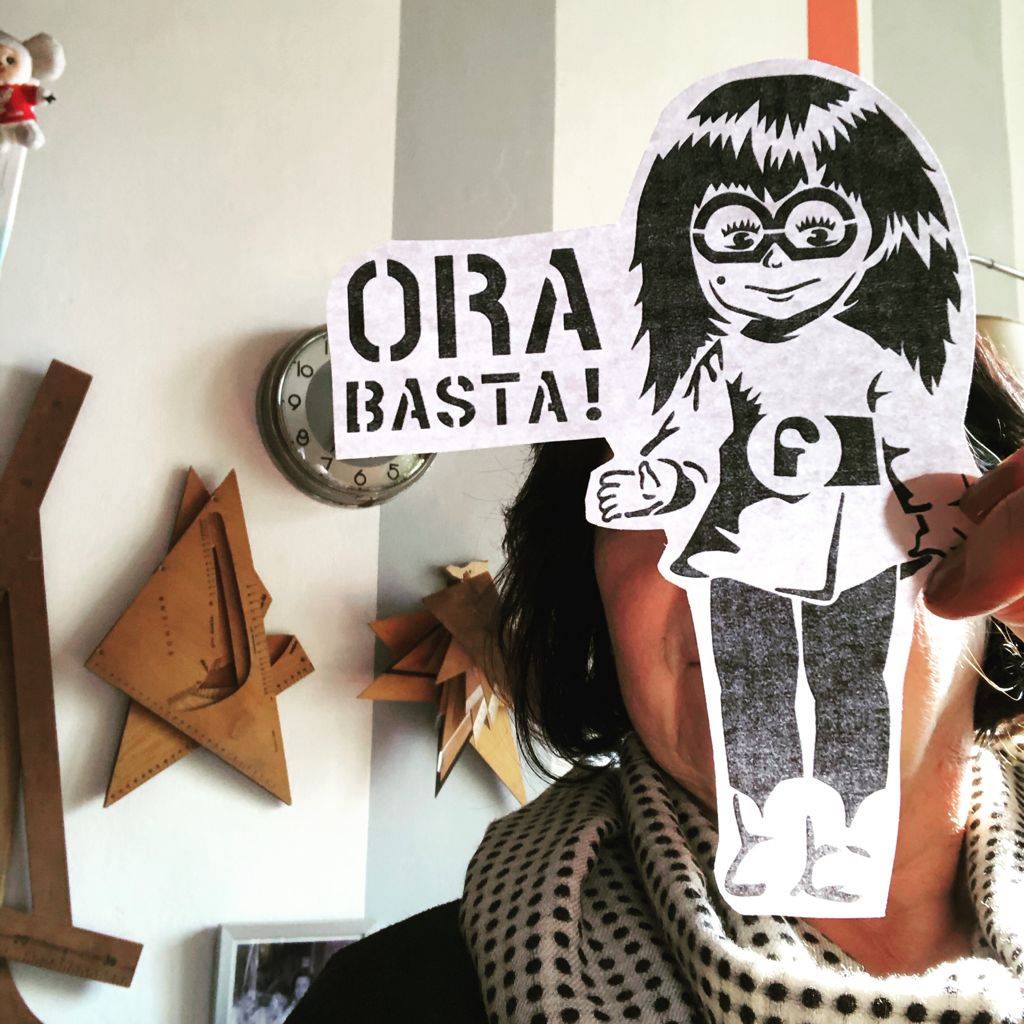Site Visits to CO4CITIES Partners: a First Glimpse into the Transferability Plan
Edited on
27 January 2022From June 2021 Levente Polyak, the CO4CITIES Lead expert, has been visiting all the Cities involved in the Transfer Network with the active involvement of local stakeholders in order to discuss challenges and objectives that will be included in the Transferability plan.
Levente has been guided through the cities of Turin, Gdansk and Cluj-Napoca while he organized meetings with several local stakeholders in Budapest, his hometown.

The possibility to organize in-person visits has been a great occasion for meeting people, enjoying informal moments and having an immersive experience in the partners' issues and ideas.
In Turin the visit focused on the pact of collaboration of Cumiana 15 that was inaugurated in September 2020 as an initiative of the Co-City Torino project including a mix of sports, cultural and community initiatives. The space is also a future venue for other local NGOs proposals, with the long-term purpose to become a social hub. The visit aimed to understand the local dynamics, to know the main actors, to understand the spaces and what ideas can be imagined for them.
In Budapest, the Lead Expert had meetings with the Municipality’s newly-established Participation Unit, the department of “Open Budapest” and the Department of Urban planning to discuss the current priorities in the regeneration of public spaces and future scenarios in their co-management and co-governance in collaboration with the City’s civil society organisations and citizens. Further meetings took place with a group that researches real estate owned by the municipality of Budapest in order to create co-housing opportunities. Levente started to explore synergies between CO4CITIES and them to optimize the mapping of the available spaces within the City that could be included in the transfer pilot.
In Cluj-Napoca the meetings took place within the Innovation and Civic Imagination Centre - CIIC - a place where local government representatives, citizens and experts from economic and academic fields meet and discuss the challenges and necessary urban transformations of the city. The centre coordinates and guides complex networks of participatory governance, including academia, NGOs, trade unions and professional associations, becoming a suitable context for debating ideas and planned projects, as well as developing innovative solutions based on the creative potential of Cluj community representatives.
Here, the Lead Expert and the Cluj-Napoca CO4CITIES’ team focused on the possibilities to involve young people as the final beneficiaries in the transfer pilot. A space owned by the Municipality could be transformed into a hub where young citizens are helped in developing their projects and managing their business, while youth workers are equipped with digital tools and skills to enhance their future opportunities.
Finally, during the Gdansk site visit, the Deputy Mayor Monika Chabior actively collaborated for the creation of the pilot strategy of the Transfer Network by identifying two different public buildings where to introduce Co-City’s collaborative mechanisms: a social housing and a social cohesion hub. The first is a public complex of 160 apartments built in 2009, having major social problems. Here the idea is to develop a community venue in order to give greater space to the inhabitants in their self-organization and to introduce social diversity. The second is a building that will be refurbished by the Municipality in order to become a hub for various social services, giving an important role to all participating organisations and their clients in the co-management of the space.
The next steps of the project are the second transnational meeting in Gdansk on the 16th and 17th of September.
 Submitted by Laura Socci on
Submitted by Laura Socci on
